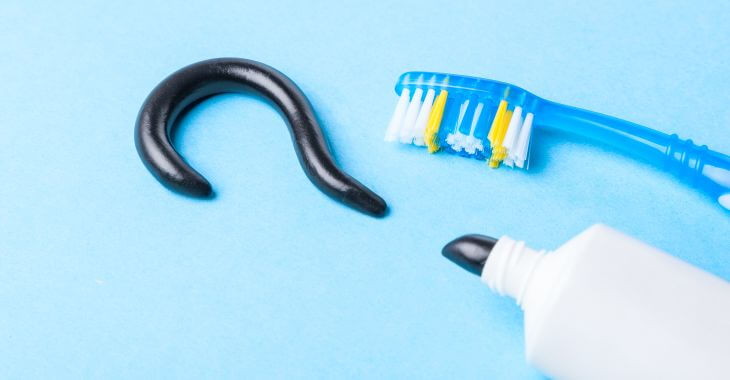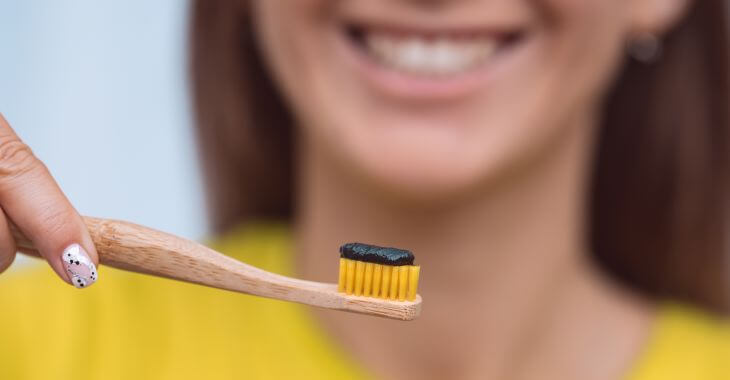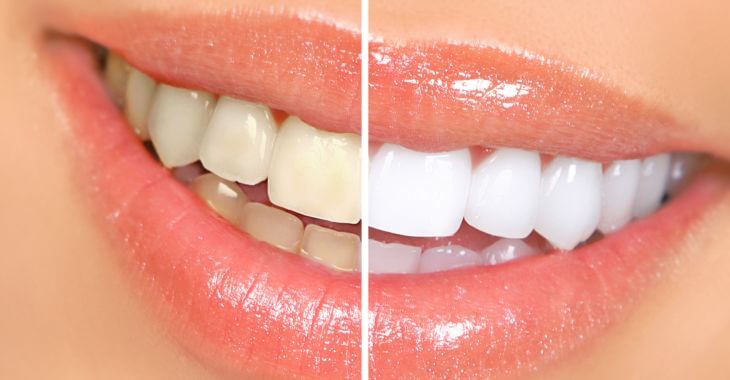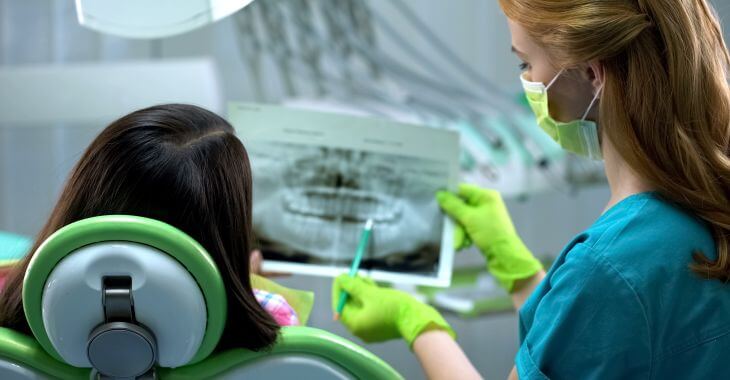Is Charcoal Toothpaste Safe for My Teeth?

There are many cosmetic products being introduced that contain charcoal. Activated charcoal is known for its ability to absorb toxins and it can be used as a mild abrasive, which is why you will see both skin and dental products with this ingredient. One of the dental uses for charcoal is teeth whitening and there are charcoal toothpastes available in stores and online. But there is concern about whether charcoal could harm teeth or cause health issues. Is charcoal toothpaste safe for your teeth? Here are some facts to consider.
Does Charcoal Toothpaste Whiten Teeth?
Activated charcoal is made from the ash of heated substances like wood or coconut shells. The fine granules are abrasive and can be used to exfoliate skin or teeth; and charcoal is able to absorb some toxins. Charcoal toothpaste works to remove surface stains by scrubbing them away with the abrasive nature of the granules, and it is believed that some stains or toxins may be absorbed. Charcoal in toothpaste can whiten the teeth by removing surface stains, but it does not whiten the intrinsic stains under the enamel.
Benefits of Using Charcoal Toothpaste
Charcoal toothpaste will whiten the teeth slightly and some people claim their breath is fresher due to its toxin- and odor-absorbing traits. If used occasionally, it can help keep teeth white, especially after they have been professionally whitened and intrinsic stains are removed. Many people like the fact that charcoal is natural without chemicals, but is charcoal toothpaste safe for everyday use? That is the question, and most likely, it is not a good idea to use this product daily, due to concerns about the damage it can do to the teeth.
Enamel Damage From Charcoal Toothpaste
The biggest concern for whitening toothpastes containing charcoal is damage to the enamel. The abrasiveness of activated charcoal can wear down enamel if this toothpaste is used daily. When the enamel is worn thin, this can cause multiple problems. It can reduce the protection of the teeth from tooth decay, inviting more cavities and damage to the teeth. Reduced enamel can also result in tooth sensitivity to hot or cold. Eventually, lost enamel can make the teeth appear yellowish, the opposite effect desired from a tooth-whitening product.
Tooth Color Can Change
Not only can charcoal wear down enamel and expose yellowish dentin, but it may stain or discolor the teeth. The fine black powder can become lodged in small cracks and crevices of the teeth and create a gray or dull appearance to the teeth. Since charcoal toothpaste is used as a whitening product, it is undesirable for most people to obtain yellow or gray teeth from using a whitening toothpaste.
Damage to Dental Work
Is charcoal toothpaste safe for fillings, crowns, bridges or veneers? There have not been enough studies done on the effects of charcoal on dental restorations to know the long-term effects. There is certainly a chance that the powder can become stuck in the edges of restorations and discolor the teeth. The abrasiveness of activated charcoal could also damage porcelain veneers, composite fillings or ceramic crowns, but the extent of this damage is not known. It is best not to risk damaging these expensive restorations.
Alternatives to Charcoal Toothpaste
With so many concerns about the safety of charcoal toothpaste for your teeth, it is better to consider an alternative. There are many teeth whitening toothpastes sold in stores that contain fluoride and are approved by the American Dental Association (ADA) for safe use. If you are looking for an effective whitening toothpaste that is natural, consider products that use baking soda, vinegar or hydrogen peroxide – these items can also be used in their natural form to whiten teeth safely, but are not as effective as some other options.
When it comes to teeth whitening, your best option is to talk to your dentist. There are many safer and more effective alternatives to charcoal toothpaste for brightening your smile. Most cosmetic dentists offer at-home professional teeth whitening products that can brighten teeth several shades and some offer in-office teeth bleaching that can dramatically whiten teeth in about an hour. Ask your dentist about the safest way to improve the whiteness of your smile – they can recommend a better option than charcoal toothpaste.

If you have been considering using charcoal toothpaste to clean and whiten your teeth, there are better options. The concerns about charcoal damaging the enamel of your teeth and possibly darkening your teeth and restorations are not worth the risk. There are many better and safer options in both toothpastes and teeth whitening products that are available than toothpastes containing charcoal. Talk to your dentist about the best whitening options and safe toothpastes to keep your smile white and healthy without using charcoal.
The information provided on this website, including text, graphics, images, and other materials, is intended solely for informational purposes and should not be used as a substitute for professional medical advice, diagnosis, or treatment.




)